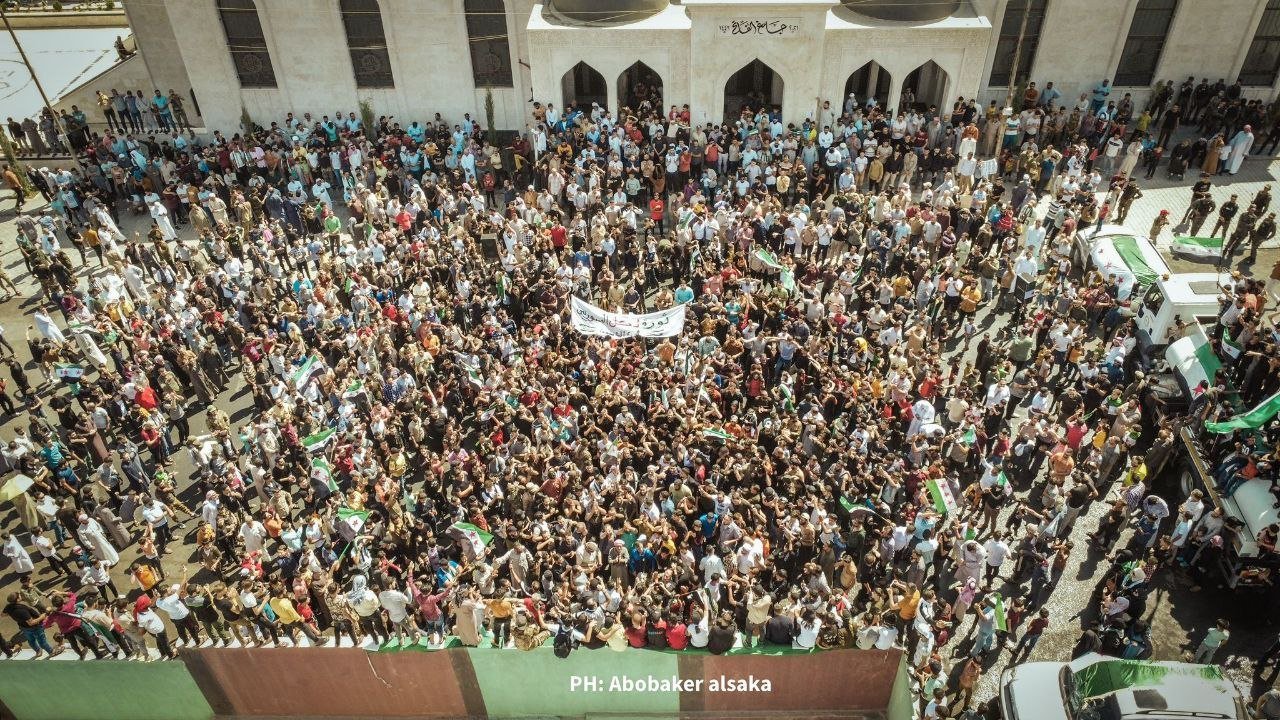Syria Monthly Report
August 2023
International
Limited progress shown as normalization efforts continue
South & central
Anti-government protests spread country-wide
Patients faced with price rises and medicine shortages
Northeast
SDF–DMC agreements fails, hostilities resume
NDF clashes with Al-Jabour tribe in Al-Hasakeh
Upstream battle to find solutions to water shortages in Al-Hasakeh
Northwest
HTS arrests deputy leader Qahtani
Popular Green Energy initiative buys electricity from small-scale solar farms
AK Energy in Aleppo raises electricity prices, sparking protest
Summary
The Arab League’s Ministerial Liaison Committee meeting in Cario on 15 August ended with an acknowledgment of the Syrian government’s efforts towards normalization in the region, combating the narcotics trade and facilitating refugee returns. However, actual results remain uncertain. Claims of Damascus assisting the UN with returns remain unsubstantiated, and cooperation with Jordan against the narcotics trade is minimal. Bashar al-Assad has also shown little interest in discussions with opposition to find a political solution to the conflict.
In south and central Syria, protests erupted in As-Sweida on 17 August following the government’s increase of fuel prices by up to 167%. The protests spread across the governorate, to Dar‘a, opposition-held Idleb and Aleppo and Autonomous Administration-held Deir-ez-Zor and Ar-Raqqa. Damascus’ options for a resolution are few. There were shortages of medicines in pharmacies across government-held areas, with depreciation pushing up production costs, and production facilities unable to remain profitable – the Ministry of Health has increased the selling price, but according to pharmacies, this remains insufficient to curb losses.
In northeast Syria, clashes between Arab tribes in Deir-ez-Zor and the Syrian Democratic Forces (SDF) following the arrest of Deir-ez-Zor Military Council (DMC) commander, Abu Khawla, on 27 August, are becoming a serious security threat. The clashes have inflamed divisive political rhetoric, and attempts at mediation (with the support of the US) have so far failed. Separately, tribes have come out in support of Sheikh Abdel Aziz al-Muslat from al-Jabour tribe, who was assaulted by a commander of the government-affiliated National Defense Force in Al-Hasakeh. It is unclear whether commander Abdul Qadir Hamo has stepped down, as was demanded by tribal leaders, however tensions have quietened. The co-chair of the Autonomous Administration’s Directorate of Water in Al-Hasakeh announced a state of emergency amid severe water shortages. He blamed Turkey’s “systematic” policy of cutting off water from the Alouk water station. People from neighboring governorates have raised money and sent water, while the Administration, not for the first time, announced a planned $18 million water wells project to feed the city with water.
In northwest Syria, Hay’at Tahrir al-Sham (HTS) arrested more individuals accused of affiliation with foreign actors and local rivals. The most high-profile arrest was of HTS co-founder and deputy leader, Abu Maria al-Qahtani. Qahtani was HTS leader Abu Mahmoud al-Jolani’s right-hand man, and was involved in various levels of HTS finances and diplomacy. In July, Green Energy introduced a policy of buying surplus electricity from privately owned solar farms in Idleb and western Aleppo. The popular initiative has been curtailed however, with the Syrian Salvation Government introducing debilitating red tape, rumored to be to restrict the market and benefit its supporters. In more energy news, protestors in northern Aleppo were angered by further price increases to their electricity bills. AK Energy justified the decision by pointing to depreciation of the lira, saying dollar prices remain the same. Local councils are tasked with finding a solution, but their powers are limited by the company’s monopoly over the area.


